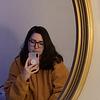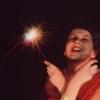You need to sign in or sign up before continuing.
Take a photo of a barcode or cover
adventurous
emotional
reflective
medium-paced
Plot or Character Driven:
Plot
Strong character development:
Yes
Loveable characters:
Yes
Diverse cast of characters:
Yes
Flaws of characters a main focus:
Yes
adventurous
fast-paced
Plot or Character Driven:
Plot
Strong character development:
Complicated
Loveable characters:
Yes
Flaws of characters a main focus:
No
A hearty tale of adventure from the fave, Ursula. Swept me away to a different world. Perhaps not as “deep” as some of her other books but still touched on something beautiful as she always does, this time in the realms of (not) naming things and what it means to belong to a people. Reminded me of the left hand of darkness for the relationship built between characters.
adventurous
reflective
fast-paced
Plot or Character Driven:
A mix
Strong character development:
Complicated
Loveable characters:
Yes
Diverse cast of characters:
Yes
Flaws of characters a main focus:
No
A wonderful example of early sci-fi from an awesome author.
Short, but it still dragged. The mind-thought concept is interesting, and I really liked Kyo.
adventurous
fast-paced
Plot or Character Driven:
A mix
Strong character development:
Yes
Loveable characters:
Yes
Diverse cast of characters:
Yes
Flaws of characters a main focus:
No
Moderate: Violence
I liked this and it was fairly engaging. Some very nice prose. I'm primarily interested in characters and this book is primarily interested in world-building, so it's 3 instead of 4 stars for me. My ratings are subjective and this just wasn't my cup of tea.
adventurous
challenging
dark
funny
reflective
tense
Plot or Character Driven:
A mix
Strong character development:
Complicated
Loveable characters:
Yes
Diverse cast of characters:
Yes
Flaws of characters a main focus:
No
Aaand thus begins the Hainish Cycle. This is really an impressive book. My expectations were low because it was Le Guin's first published work and I had heard from others that it didn't stand out that much. That was completely wrong. This book is such a wonderful blend of science fiction and fantasy. The world-building is great -- it's on a level that you would expect from Le Guin. It left me wanting more of the world that she had created. I was also enchanted by the main characters and their races and clans.
The only criticism is the lack of information in a certain plot point, but it can sort of be excused as the book is from Rocannon's perspective. There still, however, could have been more information laid out at the end of the book, in the epilogue, regarding this plot point, which I'm trying not to mention directly because of spoilers, but which has to do with what was happening on other worlds.
The only criticism is the lack of information in a certain plot point, but it can sort of be excused as the book is from Rocannon's perspective. There still, however, could have been more information laid out at the end of the book, in the epilogue, regarding this plot point, which I'm trying not to mention directly because of spoilers, but which has to do with what was happening on other worlds.
adventurous
medium-paced
Plot or Character Driven:
Plot
Strong character development:
No
Loveable characters:
Complicated
Diverse cast of characters:
Yes
Flaws of characters a main focus:
No
...there were no words. Yet it asked him what he wished. “I do not know,” the man said aloud in terror, but his set will answered silently for him: I will go south and find my enemy and destroy him. [loc. 1632]
Le Guin's first published novel (1966), and not nearly as distinctive or profound as her later work: it's more readable than a lot of mid-Sixties planetary romance, though, and there are traces of themes that would appear in her later novels, such as sacrifice and colonialism.
Rocannon is a 'middle-aged' (43!) ethnologist, who -- in the opening chapter, a variant of Le Guin's short story 'Semley's Necklace' -- encounters a beautiful alien woman who has been brought by dwarven Clayfolk to retrieve an heirloom from a museum. Semley's story ends when she returns to her world and discovers that her husband is dead and her daughter an old woman: though the journey took 'one night' for her, decades have passed. It's as though she's been taken to Fairyland, and Rocannon's subsequent journey to her world has many of the trappings of a fantasy novel: a quest with a varied group of companions, a gift that is also a curse, the realisation that one can't go home again.
The main narrative begins some years later, after Rocannon has travelled to Fomalhaut II (Semley's planet) to do a survey: a stealth attack has destroyed Rocannon's spaceship and killed the rest of his team. He is stranded, and he needs to get a message to the League of All Worlds to report the ship's destruction and the presence of the lightly-sketched Enemy. He travels south, accompanied by Semley's grandson Mogien, a couple of servants, and an elven Fiia given to prophesy: his technology is mistaken for magic, and he himself for the mythological 'Wanderer': he encounters monstrous winged creatures, rough piratical types, intelligent rodents and an unseen entity who bestows a double-edged gift. And then, when his mission is accomplished, the novel concludes in less than a page. Yes, it's a short novel (originally half an Ace Double), but the pacing is ... uneven.
I did enjoy reading this, despite Rocannon's single-note character. I liked the way that the world is shaped by Rocannon's own decision to put the planet in a kind of quarantine. "...after I met Lady Semley, I went to my people and said, what are we doing on this world we don’t know anything about? Why are we taking their money and pushing them about? What right have we?" [loc. 469] And I liked the occasional phrase that rang true, that reminded me of Le Guin's later work: "this world to which he had come a stranger across the gulfs of night" [loc. 843]
This was technically a reread, though very little felt at all familiar: I bought Rocannon's World for my father one Christmas in the ?1980s, and very likely devoured it pre-gifting. I inherited that paperback, too, and kept it until 2007. This time round I bought the compendium Worlds of Exile and Illusion, which contains Le Guin's first three novels: I'll get around to Planet of Exile and City of Illusions at some point...
A classic story of a hero's journey or "quest" with a classic but never outdone Le Guin approach. I always find my love for Le Guin's storytelling hard to articulate, but just like in TLHOD, our main character, so unfamiliar and confused by and even resistant to the world he lives in, questions and questions, but through that questioning, "lives," and then "becomes."
"did you bear no name of your own?" "They call me herdsman, or runner, or younger brother. I was quick in our racing." "But those are nicknames, descriptions. You are great "name-givers," you Theha. You greet each newcomer with a nickname, "Star Lord," "Sword Bearer," "Sun Haired." I think the Angear learned their love of such nicknaming to you. And yet, you have no names." "Star Lord? Far-traveled? Ashened haired? Jewel Bearer? What then is a name?" "I'm not sure what a name is. My name given to me at birth was 'Gravriel Rocannon. When I've said that I've described nothing, yet I've named myself. And when I see a new kind of tree in this land, I ask [] what its name is. It troubles me until I know its name." "Well it is a tree. As I am a Thehan. As you are a...what?" "But there are distinctions. At each village here I ask 'what are those western mountains called?' They say, 'those are mountains.'" "So they are." "But there are other mountains. The lower range to the east, along the same valley. How do you know one range from another? One being from another, without names?" Clasping his knees, the Thehan gazed at the sunset peaks, burning high in the west. After a while, Rocannon realized he was not going to answer.
GOD. And then he gives his "name" to the world, becoming a "part" of it and learning to mind speak. And then at the very end they name the planet after him.
"did you bear no name of your own?" "They call me herdsman, or runner, or younger brother. I was quick in our racing." "But those are nicknames, descriptions. You are great "name-givers," you Theha. You greet each newcomer with a nickname, "Star Lord," "Sword Bearer," "Sun Haired." I think the Angear learned their love of such nicknaming to you. And yet, you have no names." "Star Lord? Far-traveled? Ashened haired? Jewel Bearer? What then is a name?" "I'm not sure what a name is. My name given to me at birth was 'Gravriel Rocannon. When I've said that I've described nothing, yet I've named myself. And when I see a new kind of tree in this land, I ask [] what its name is. It troubles me until I know its name." "Well it is a tree. As I am a Thehan. As you are a...what?" "But there are distinctions. At each village here I ask 'what are those western mountains called?' They say, 'those are mountains.'" "So they are." "But there are other mountains. The lower range to the east, along the same valley. How do you know one range from another? One being from another, without names?" Clasping his knees, the Thehan gazed at the sunset peaks, burning high in the west. After a while, Rocannon realized he was not going to answer.
GOD. And then he gives his "name" to the world, becoming a "part" of it and learning to mind speak. And then at the very end they name the planet after him.




